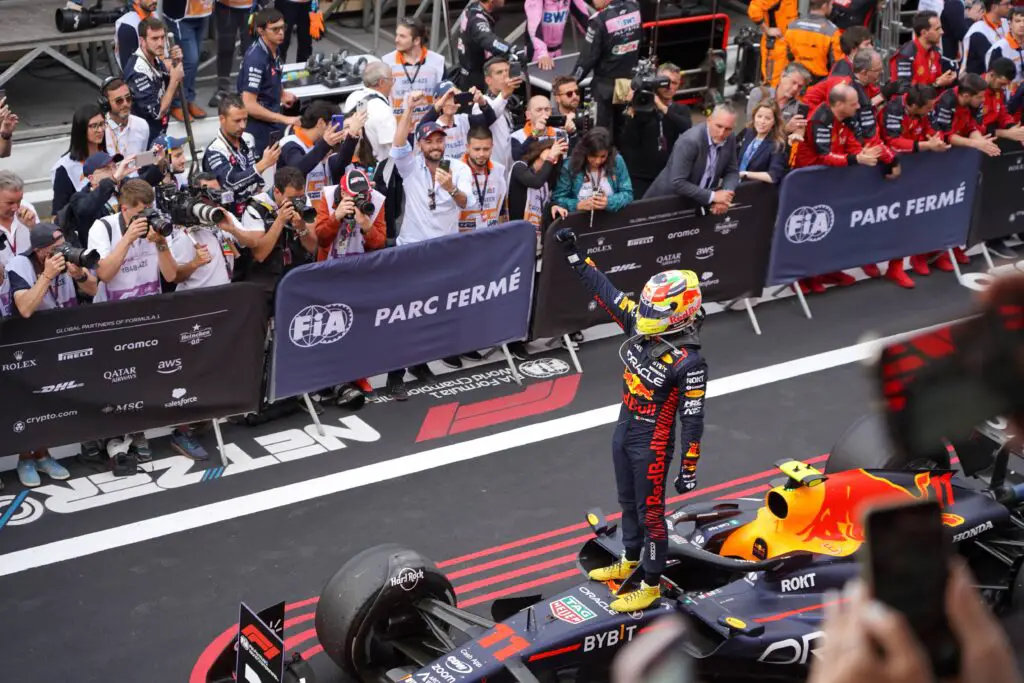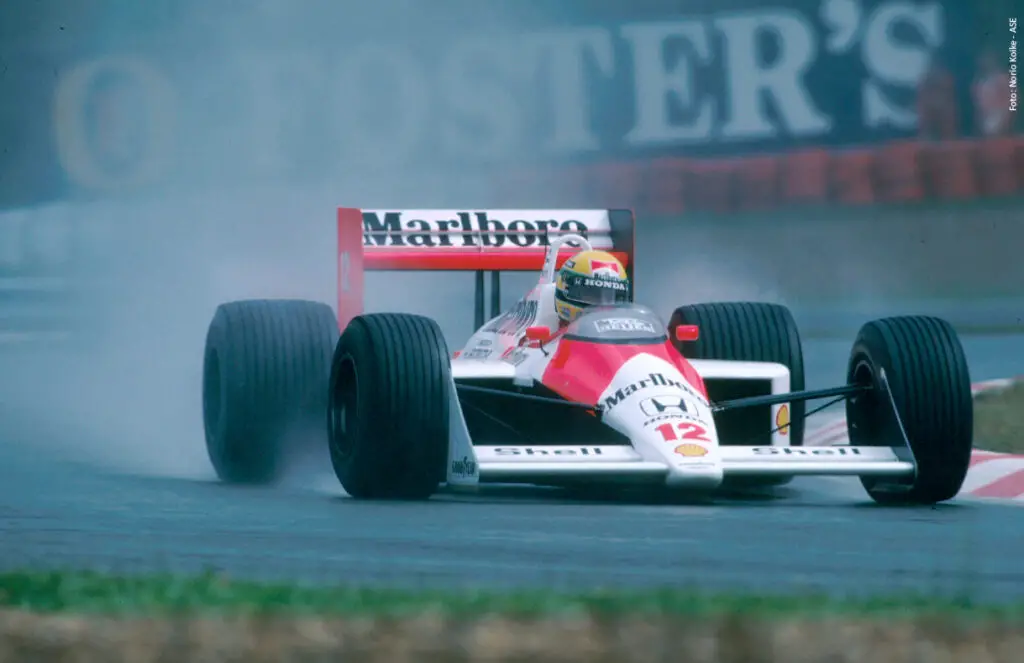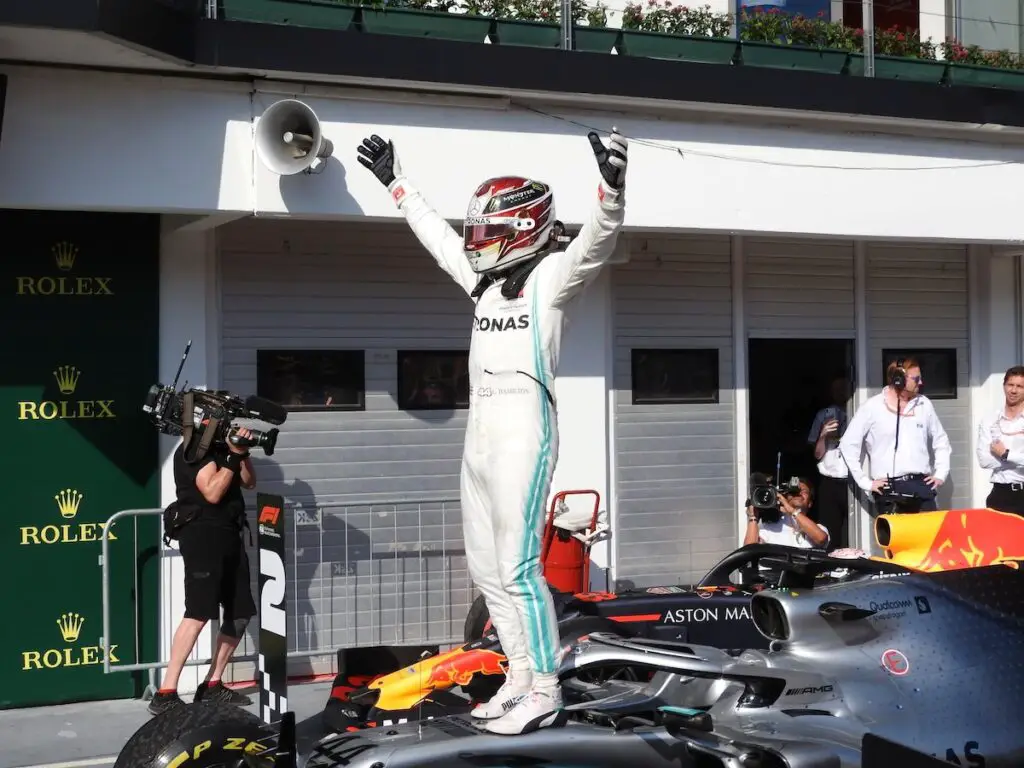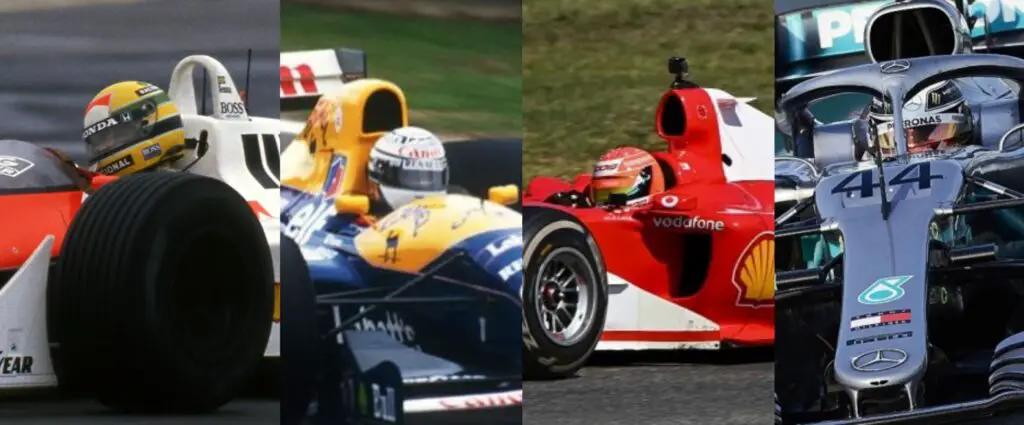Red Bull won all of the first 14 races in the 2023 Formula 1 season; setting a new record for the longest winning streak at the start of a season. Which other teams have had long winning streaks at the start of the year?
14 wins: Red Bull, 2023
Red Bull enjoyed unparalleled domination at the start of the 2023 Formula 1 season, winning all of the first 14 races of the year. Max Verstappen took 12 of the 14 wins, with team-mate Sergio Perez bringing home victories in Saudi Arabia and Azerbaijan.

Red Bull’s winning streak was ended at the 2023 Singapore Grand Prix, where neither driver could reach Q3 and Carlos Sainz took victory with Ferrari. It turned out to be the only race of the year which Red Bull did not win, with Verstappen securing the victory in all of the last seven races of the season on his way to his third successive title win.
11 wins: McLaren, 1988
Back in 1988, McLaren set a record for the longest winning streak for a team at the start of a Formula 1 season which would not be broken for 35 years.
Prior to McLaren’s incredible run, no team had previously won more than the first three races of the year – and even that had happened only twice: for Lotus in 1968 and Ferrari in 1976.
The 1988 Formula 1 season is one of the most dominant seasons for a team in the sport’s history. McLaren won 93% of the races held that year; the highest winning percentage any team has ever had in a single season.

The team won all of the first 11 races of the year, with Alain Prost taking four wins and Ayrton Senna securing seven victories in the duo’s first year as McLaren team-mates. Senna was on an impressive run of four consecutive wins when F1 arrived in Monza for the 1988 Italian Grand Prix.
It would be at Monza where McLaren’s winning streak came to an end. The team locked out the front row and ran 1-2 until Lap 34, when Prost recorded the team’s only mechanical retirement of the 1988 season. Senna remained in the lead until just two laps from the chequered flag.
Jean-Louis Schlesser was deputising at Williams in place of Nigel Mansell, who was suffering with chicken pox. With two laps to go, Senna attempted to lap Schlesser’s Williams but the ill-fated move resulted in a spin for the McLaren. Senna finished only tenth after getting going again, this being the only race of the entire season which McLaren did not win.
As well as being the longest winning streak at the start of a season, McLaren’s run of 11 wins in 1988 remained the longest ever winning streak for a team in Formula 1, until it was broken by Red Bull in 2023.
8 wins: Mercedes, 2019
In 2019, Mercedes got their season off to a highly impressive start by recording five 1-2 finishes in the first five races. Their fifth 1-2 in a row at the Spanish Grand Prix tied the record for most consecutive 1-2 finishes in F1 history.

They were unable to secure another 1-2 result at the next race, the Monaco Grand Prix, but Lewis Hamilton’s victory ensured Mercedes’ early season winning streak continued. It would do so for another two races, with Hamilton winning both times.
Mercedes’ streak of eight wins at the start of the 2019 season was ended at the 2019 Austrian Grand Prix. While Max Verstappen and Charles Leclerc fought for victory at the Red Bull Ring, Valtteri Bottas finished third, while Hamilton could manage no better than fifth.
6 wins: Mercedes, 2014
2019 wasn’t the first time that Mercedes had won more than five races in a row at the start of a Formula 1 season. The beginning of the 2014 campaign saw Mercedes assert their dominance at the dawn of Formula 1’s V6 hybrid era. No team came close to toppling Mercedes throughout the opening six races, with Lewis Hamilton securing four victories and Nico Rosberg winning twice.
Mercedes’ winning streak came to an end at the 2014 Canadian Grand Prix. Both cars suffered engine related issues, putting them down on power. Hamilton retired, while Rosberg clung on to the lead until the closing stages when he was passed by Daniel Ricciardo. The Australian clinched his first ever F1 victory and ended what was then the second-longest early season winning streak for a team.
5 wins: Williams, 1992
Nigel Mansell was the man to beat in 1992 and he set a new record for the most consecutive wins at the start of a season for a single driver. Mansell won all of the first five races from pole position with Williams in 1992 and took pole again for the sixth race of the year – the Monaco Grand Prix.
The 1992 Monaco Grand Prix is remembered for the late race showdown between Mansell and Ayrton Senna. The Brazilian was able to get ahead of the Williams when Mansell made a late unscheduled stop for a suspected puncture. Despite his best attempts to get back ahead, Mansell was unable to stop Senna from taking a record-equalling fifth Monaco Grand Prix victory.
Just 0.215 seconds on the line prevented Williams’ early season winning streak from going any further than five races.
5 wins: Williams, 1996
Williams enjoyed another five race winning streak at the beginning of the 1996 season. For 1996, Damon Hill was joined by newcomer Jacques Villeneuve. Hill’s experience aided him to winning four of the first five races in 1996. Villeneuve proved to be a serious threat, however, and clinched his first win on only his fourth F1 start at the 1996 European Grand Prix.
Like in 1992, Williams’ early season winning streak ended at the sixth race of the year in Monaco. The 1996 Monaco Grand Prix was held in treacherous conditions, with only three cars reaching the chequered flag. Neither of Williams’ drivers finished the race, with any hope of the team extending their early season win record over by Lap 66.
5 wins: Ferrari, 2004
In 2004, Michael Schumacher equalled Nigel Mansell as the driver to have won the most consecutive races at the start of a Formula 1 season. Schumacher guided Ferrari to winning all of the first five races in 2004. Much like the two winning streaks above, Ferrari’s came to a close at the Monaco Grand Prix.
Jarno Trulli took his only Formula 1 win at the 2004 Monaco Grand Prix, while Ferrari’s best result was third place for Rubens Barrichello. Schumacher failed to finish the race following a collision with Juan Pablo Montoya in the tunnel.

